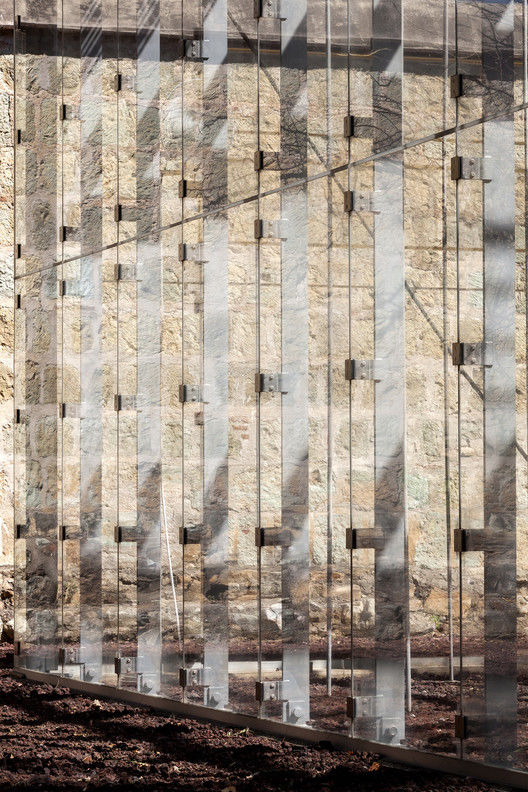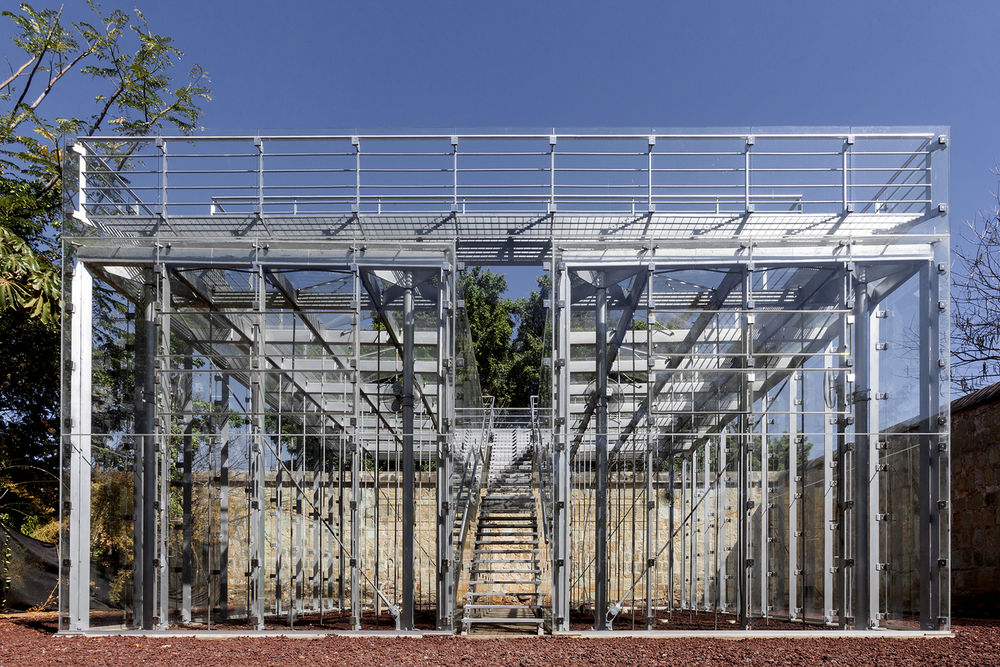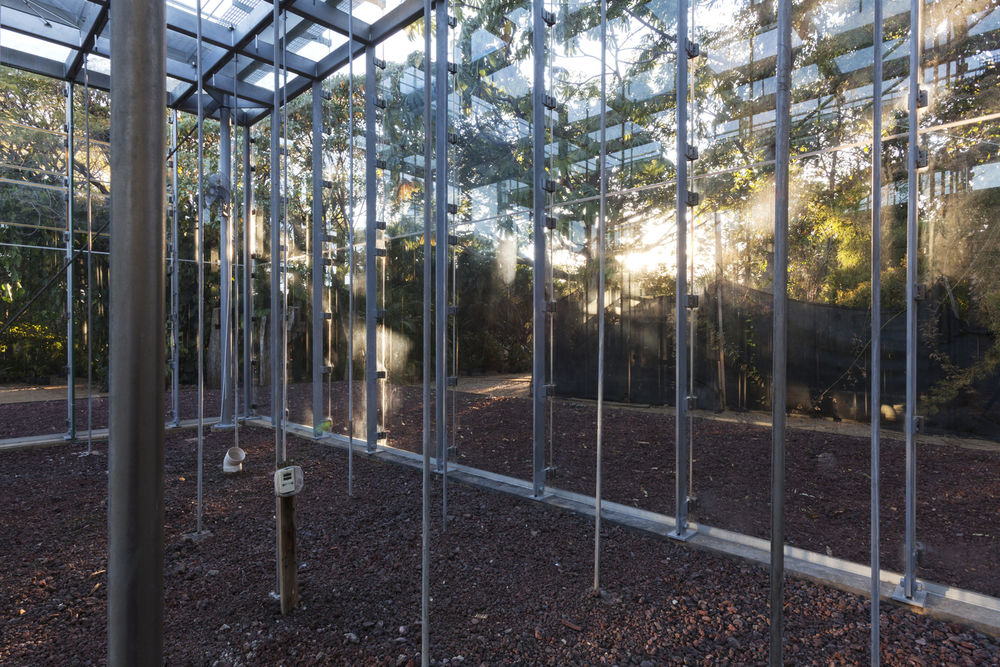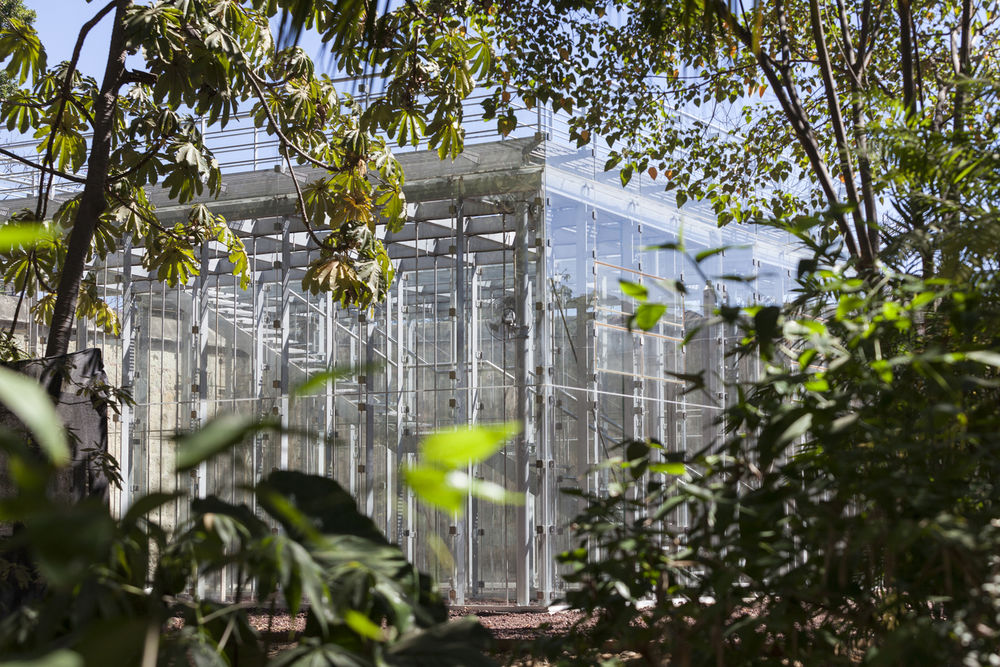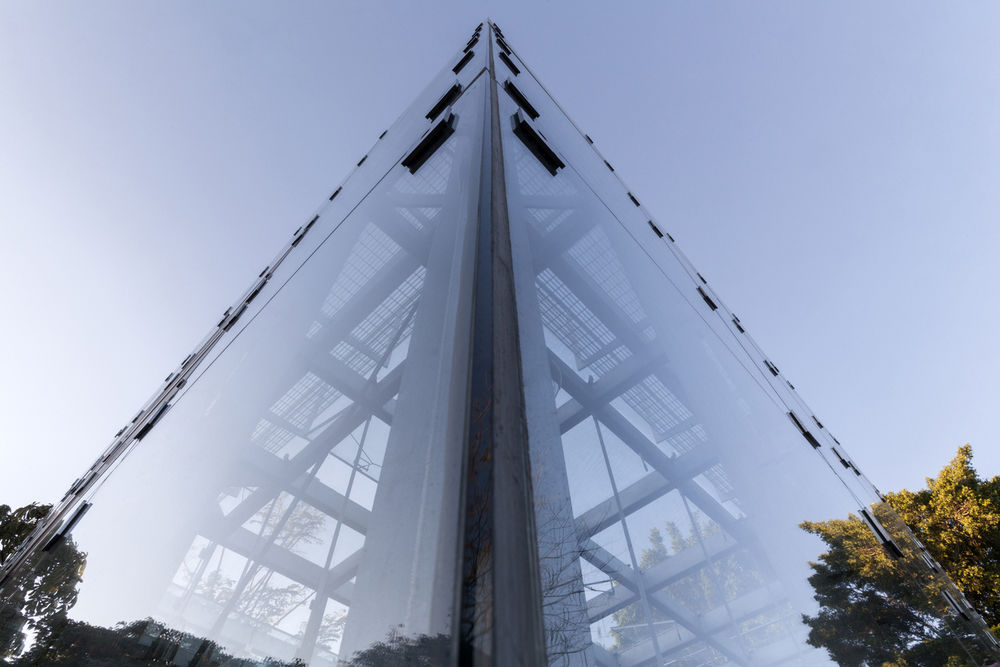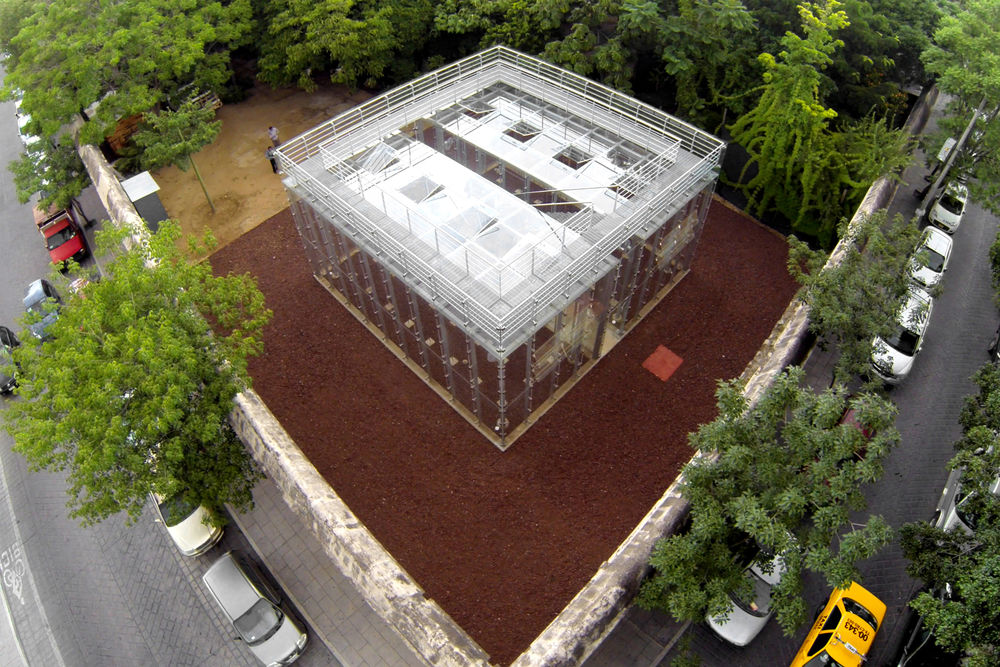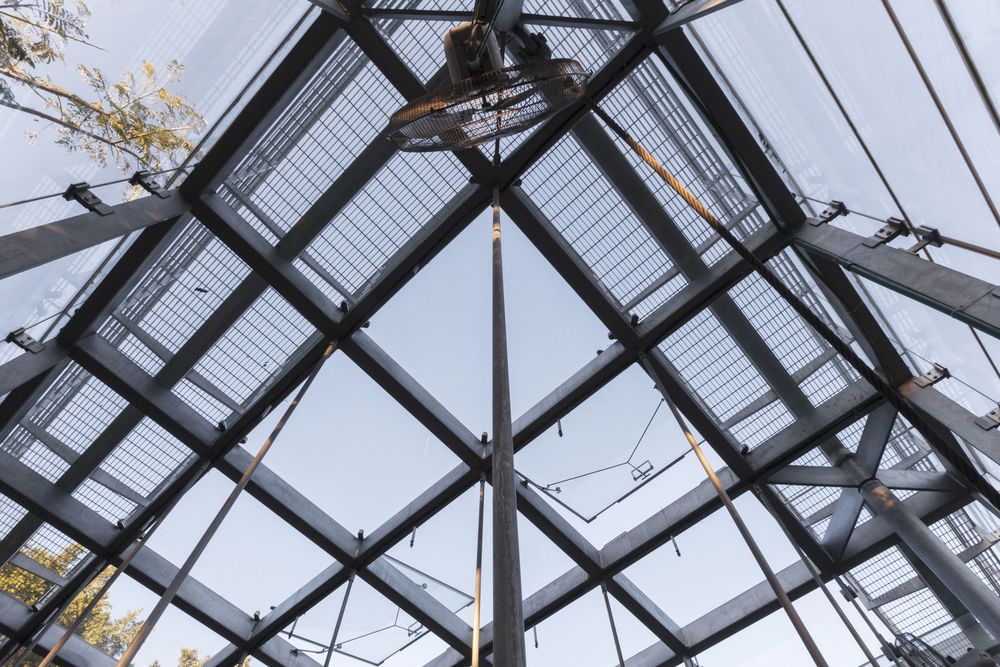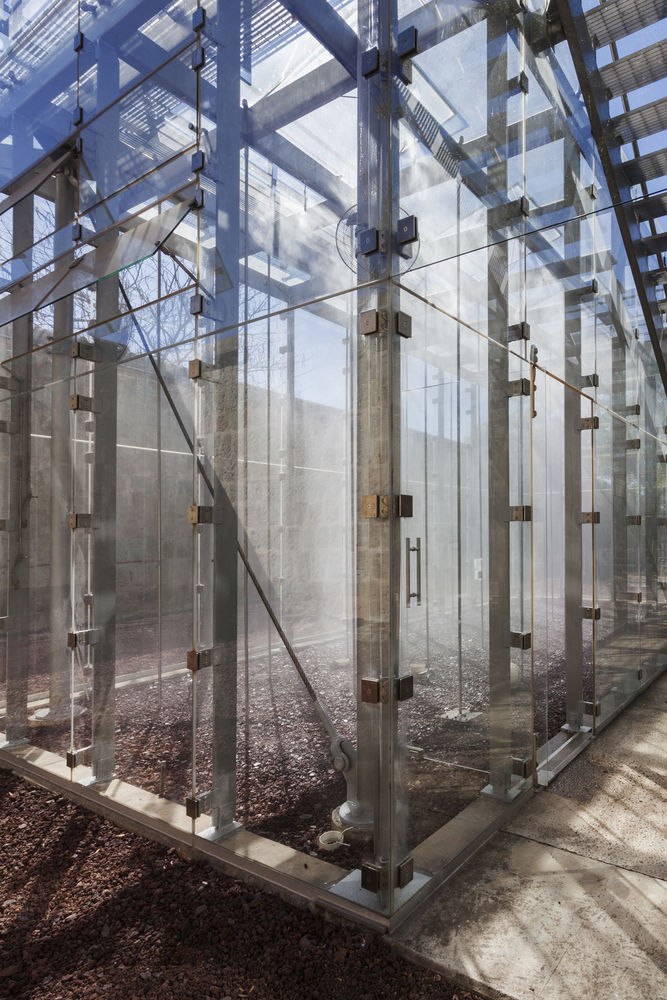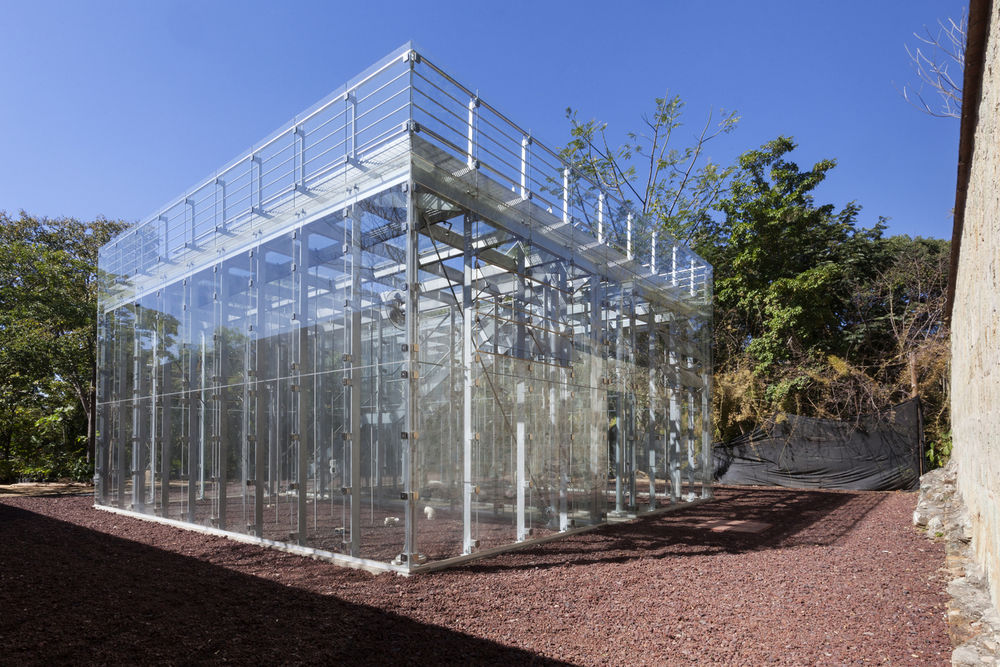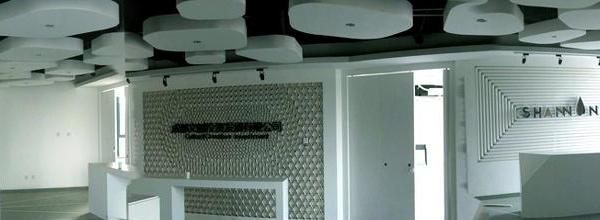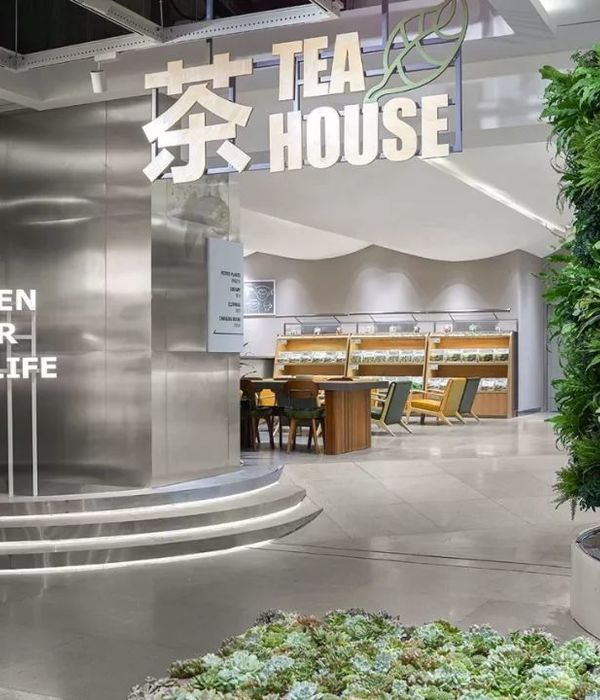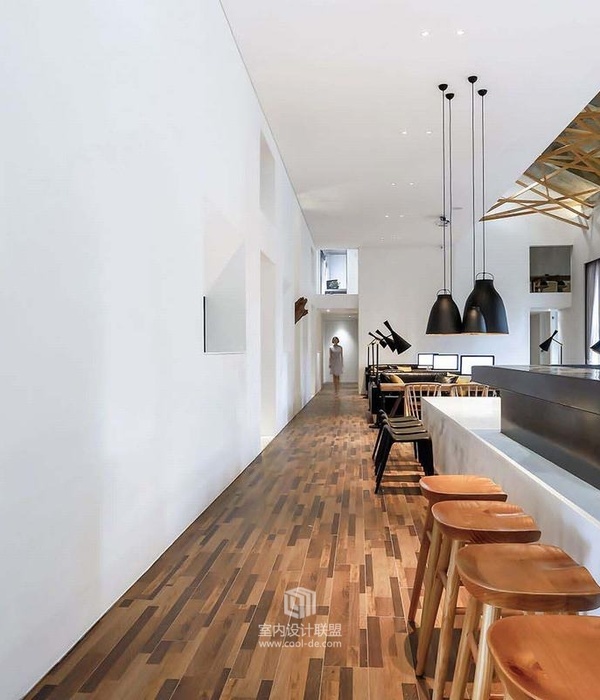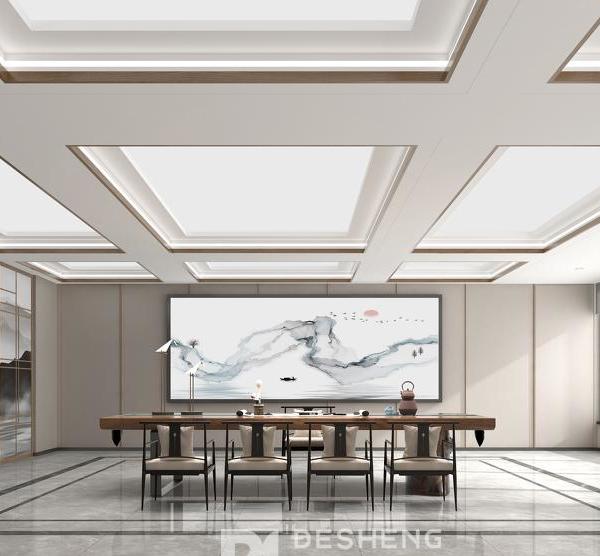兰花教育馆 | 零能耗、互动式生物多样性教育空间
架构师提供的文本描述。兰花教育馆位于墨西哥瓦哈卡的民族植物园,位于教堂和前圣多明戈修道院的围墙内(1572-1666)。它是世界上最具生物多样性的生态系统之一,也是整个文化体验的一部分。墨西哥艺术家弗朗西斯科·托莱多和路易斯·萨拉塔特以及人类学家和生物学家亚历杭德罗·德阿维拉于1994年夏天开始创建文化组合,成为圣多明各植物园。他们希望通过一个展馆来实现他们的成就,以培养多样化的物种,进行实验,并教授社区知识。
Text description provided by the architects. The Orchid Educational Pavilion is located in the Ethnobotanical Gardens in Oaxaca, Mexico within the walls of the Church and former Monastery Santo Domingo de Guzman (1572-1666). It sits within one of the most biologically diverse ecologies in the world and as part of an ensemble of cultural experiences. Mexican Artists Francisco Toledo and Luis Zárate and the Anthropologist and Biologist, Alejandro de Avila began creating the cultural ensemble that would become the Botanical Gardens of Santo Domingo in the summer of 1994. They hoped to crown their achievement with a pavilion for growing diverse species, conducting experiments, and teaching the community.

兰花教育馆旨在通过可持续的系统(零能量)支持多样化物种的生长条件,同时也是一座微创建筑。它旨在作为一个互动工具,教育后代了解该区域广阔的生物多样性,并鼓励更广泛地植根于可持续建筑。其被动冷却和灌溉系统所需的少量能源由远距离太阳能电池板和地热系统提供。同时,模块化单元允许结构扩展、拆除或在必要时完全移动。
The Orchid Educational Pavilion is intended to support the conditions for growing diverse species through sustainable systems (zero energy) while being a minimally invasive building. It is designed as an interactive tool to educate future generations in the vastness of the biodiversity of the region and inspire broader implantation of sustainable architecture. The small amount of energy it needs for its passive cooling and irrigation systems is provided by remote solar panels and a geothermal system. At the same time, modular units allow the structure to be extended, dismantled, or moved entirely if necessary.
Courtesy of FGP Atelier
FGP Atelier提供
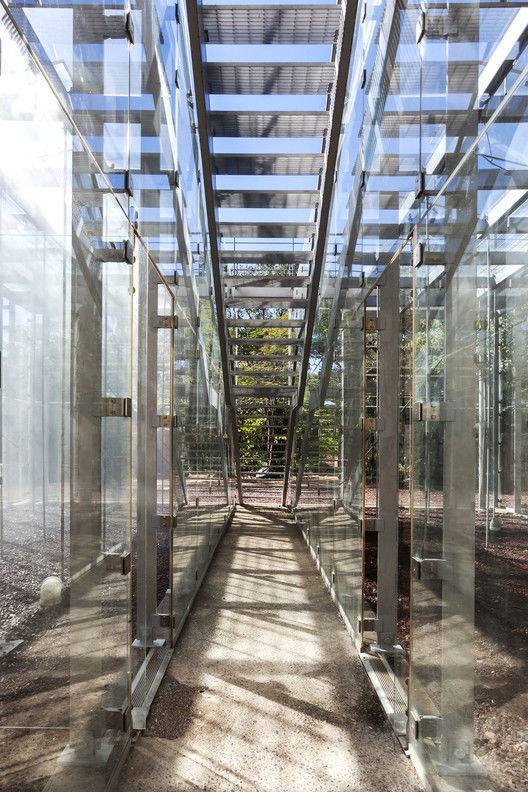
亭提供了一个独特的经验植物园通过它的重要性和方式,它的框架,它的背景。这是一个完全自我维持的生态系统,它要求游客考虑如何以更可持续的方式生活,以及思考如何维持脆弱物种的生命,以及在未来维持我们脆弱的生存所需要的条件。
The Pavilion provides a unique experience within the Botanical Gardens through its materiality and the way that it frames its context. An entirely self-sustaining ecosystem, it challenges visitors to consider how they might live in a more sustainable manner as well as to reflect on what is required to sustain the life of delicate species and that might be required to sustain our own delicate existence in the future.
Courtesy of FGP Atelier
FGP Atelier提供
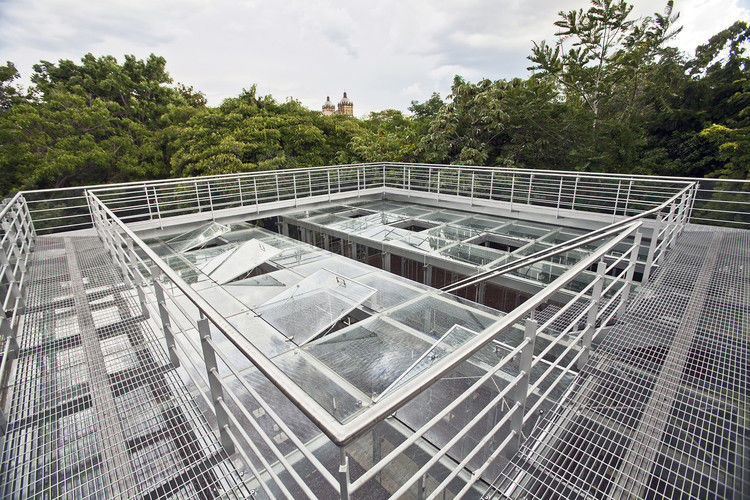
Elevation + Sections
高程剖面
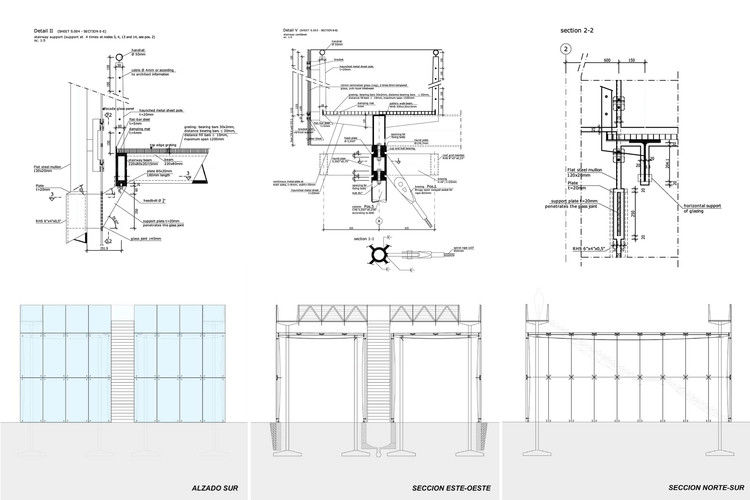
Courtesy of FGP Atelier
FGP Atelier提供
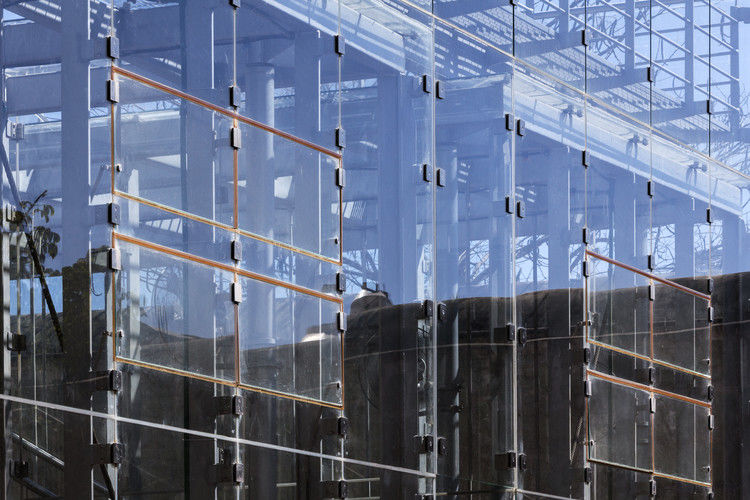
在设计中,完全透明的想法是至关重要的。楼梯和观景台的地板是一个开放的栅格,允许光线和视野从各个方向进入房间。它的设计基于五个要素:西室(热室)、东室(冷室)、中央楼梯(收集雨水)、观景台和地热系统。东侧和西侧为矩形玻璃盒,位于南北轴线上,以激发自然交叉通风。它们位于中央楼梯的两侧,并设计成以非常不同的热标准运行。
The idea of total transparency was critical in the design. The flooring planks for the staircase and the viewing platform are an open grid to allow light and views from all directions into the chambers. Its design is based on five elements: the west chamber (hot chamber), the east chamber (cool chamber), the central staircase (which collects rainfall), the viewing platform, and the geothermal system. The east and west chambers are rectangular glass boxes oriented on the north-south axis to provoke natural cross ventilation. They are located on either side of the central staircase and designed to run on very different thermal criteria.
Courtesy of FGP Atelier
FGP Atelier提供
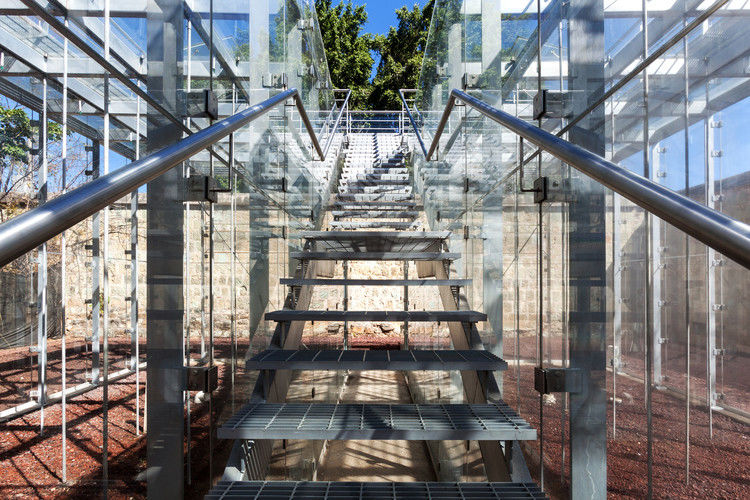
该空调是通过一个地热系统提供的,该系统通过两个由太阳能电池板供电的空气处理装置从地下土壤向室内注入冷空气。中央楼梯带着游客穿过房间来到观景台,从那里可以欣赏到教堂和植物园的令人惊叹的景色,同时也是一个从高楼的角度来思考精心设计的植物内容的机会。在楼梯下面,收集和储存雨水,供支持冷却和灌溉系统的蒸发冷却系统使用。此外,这座建筑的大部分都是瓦哈卡的工匠手工制作、制造和组装的。
The conditioning is provided through a geothermal system that injects cold air into the chambers from the underground soil via 2 air-handling units that are powered by solar panels. The central staircase brings the visitors through the chambers up to the viewing platform from where stunning views into the church and the botanical gardens can be experienced as well an opportunity to contemplate the curated plant content from an elevated perspective. Underneath the staircase, rainfall is collected and stored to be used by the evaporative cooling system that supports the cooling and irrigation systems. In addition, the majority of the building has been hand-crafted, manufactured and assembled on site by artisans from Oaxaca.
Courtesy of FGP Atelier
FGP Atelier提供
